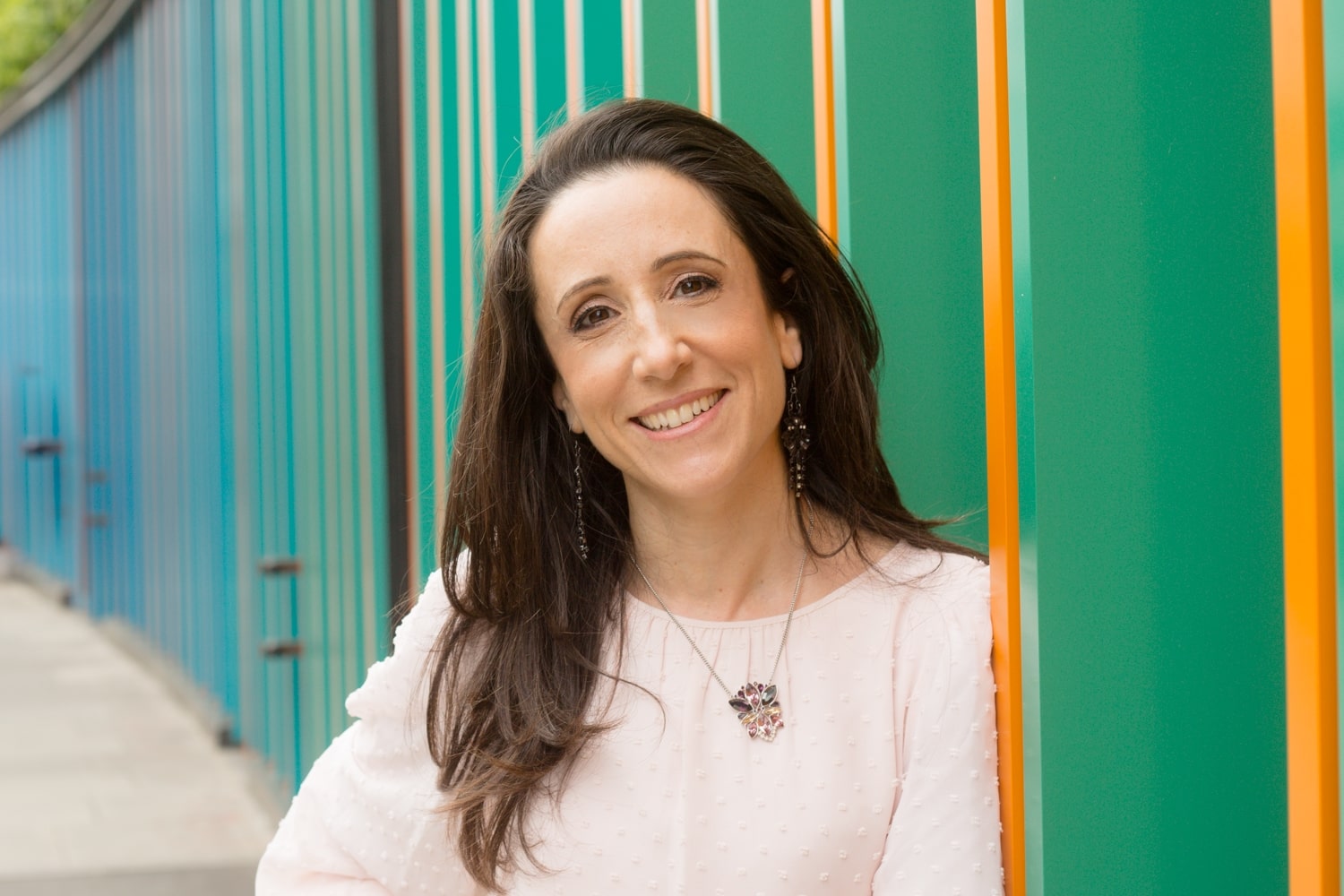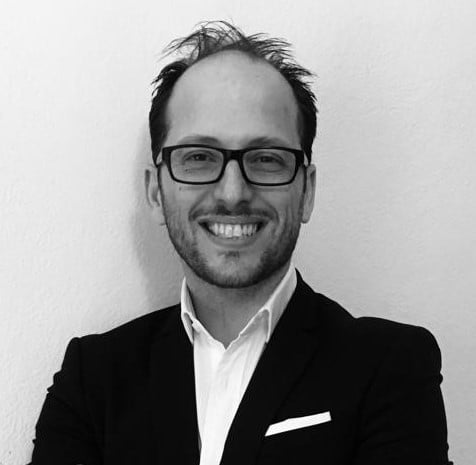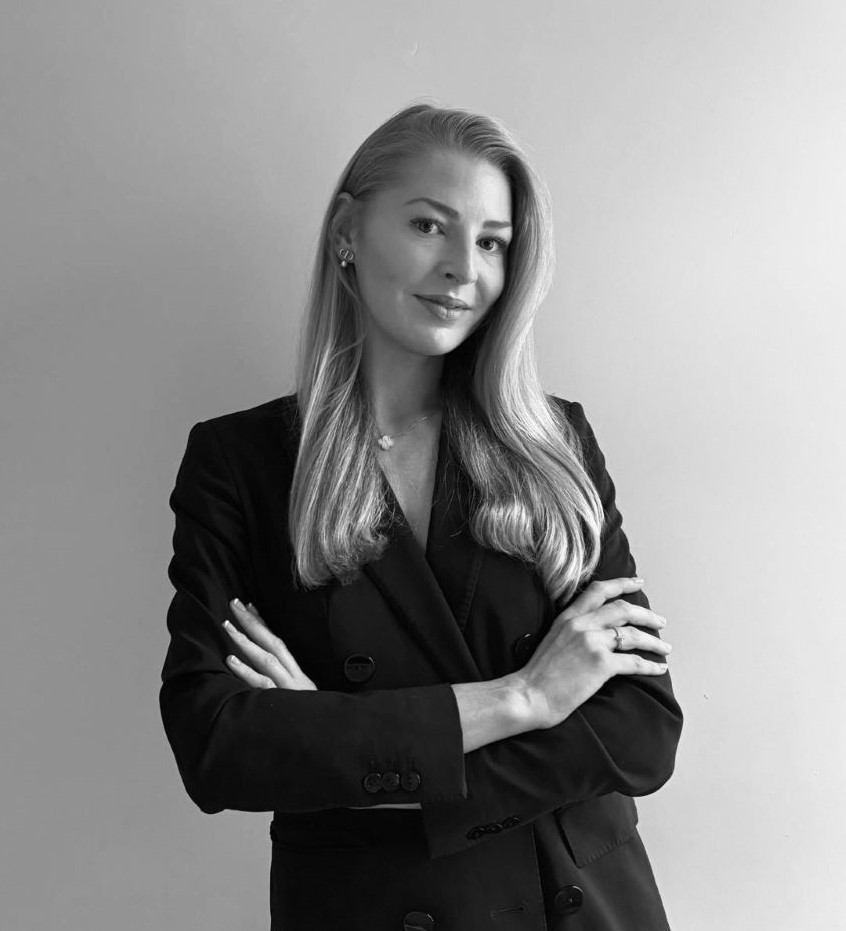Debra has 17+ years of experience working in the purpose and sustainability space. A former BBC TV Producer/ Director, she began her career producing political and environmental programmes, including a 6 part series on the climate crisis. Since founding Verity London, she has delivered sustainability-focused strategic communications for national and multinational brands. She has shaped and reframed responsible business strategy to help organisations tackle some of society’s most complex topics and provided consultancy to help brands align sustainability with commerciality. She is a public speaker and talks on multiple topics related to responsible business and sustainability and how to best use communications to transform engagement, mobilise behaviour change and drive positive and lasting impact.
1. Can you share the story of what inspired you to found Verity, and focus on sustainability and business responsibility?
I began my career at the BBC as a Producer / Director. I produced documentaries on political issues and climate change and worked on purposeful television brands, including Crimewatch and Watchdog. I enjoyed interrogating issues, seeking the evidence behind any claims, applying editorial logic and creativity and engaging different people through compelling storytelling.
I left television in 2006 to translate my skills into the corporate world. Together with my co-founder, we saw the opportunity to help organisations deliver clarity around their commitments to people and the planet, transform engagement with stakeholders, use storytelling to mobilise behaviour change and embed strategy into culture with authentic, evidence-based communications.
2. On that journey, what would you say has been the most significant moment or milestone that has shaped your approach?
In 2020, I was lucky enough to secure a place on the Goldman Sachs 10,000 Small Business programme. It gave me valuable mentorship and learning from expert consultants at Said Business School, Oxford University. This helped shape our business plan proposition and focus on the three reasons clients come to us – to enhance leadership performance (helping organisations understand what is materially important to them and feed this into strategy development), transform engagement (using best practice communications and meaningful storytelling to drive positive change) and realise growth (with sustainability unlocking innovation, partnerships and sales).
Becoming B Corp certified in 2022 allowed us to build on this and demonstrate how we’re walking to talk alongside our clients.
3. Every year it seems the pace of change gets ever faster. Against this backdrop, how do you ensure you stay adaptable and open to change?
We work in a rapidly evolving landscape where sustainability requirements are increasingly complex for our clients. There are new regulations and reporting expectations both imminent and on the horizon. Different frameworks and measurements exist, which organisations need to be assessed against. Meanwhile, there’s still the threat of greenwashing claims and penalties, with the risk of reputational damage ever-present.
Within this environment, we recognise that leaders seek clarity, direction and the ability to mitigate risk. To remain adaptable for our clients, our team stays up to speed on the latest standards, regulations and trends, constantly monitoring geopolitical, legislative and world events. We share these via our social channels, whitepapers, exclusive mastermind group events and webinars.
This allows us to support organisations in navigating complexities, being forward-thinking, and remaining focused on objectives. It ensures they can continue to drive sustainable positive impact and deliver tangible benefits for the triple bottom line despite an ever-changing backdrop.
4. Founding a business often involves taking risks. But what role do you believe risk-taking plays in achieving success?
Taking calculated risks and innovating are essential to building a thriving business and being an entrepreneur. Likewise, it’s important to be able to fail fast and be adaptable and forward-thinking, especially when it comes to sustainability. Enabling the team to explore new opportunities and ideas, test assumptions and learn quickly is also critical to success.
5. What is your leadership philosophy, and how do you use this to inspire and motivate those around you?
“Leading with kindness is the key to eliminating fear, creating trust and bringing people together”, Karyn Ross, Author of The Kind Leader. I believe in empowering people, encouraging diverse thinking and feedback and showing respect. Whether working with my team, clients or partners, I hold true to this philosophy at all times.
6. Overcoming challenges and displaying resilience are increasingly important. Can you share any setbacks you’ve encountered and how you’ve used that experience to learn and grow?
We’ve experienced setbacks – of course. I try to see them as part of the inevitably challenging road to success. I believe that how we respond to issues and problems does affect the outcome. Trying to remain positive and keep self-belief can be difficult when something doesn’t go as planned. But it’s the only way to create that resilience. We had a surprisingly strong period over Covid, which I know was challenging for so many businesses. Communication was so important during the lockdown. However, economic downturns can affect client budgets. Our biggest learning recently has been to really listen to our gut and act on it – even if it means we have to make difficult decisions.
7. Uncovering, supporting and backing ideas can often make the difference in business. What do you believe is important when seeking to foster a culture of innovation and creativity?
Definitely, the approach that there’s no such thing as a stupid question and stressing how much we value ideas. We’ve never been an ego-driven or hierarchical company, and we know that getting the best from people is about empowering and trusting them as much as we can.
8. Business leaders often face challenges in balancing work and personal life. How do you manage this balance, and what strategies do you use to prevent burnout?
I have always been conscious of trying to balance my work and personal life – although I haven’t always succeeded! I am a Trustee of a charity and offer some pro bono strategic communications consultancy and mentoring, too, so I can have some pretty heavy weeks.
After almost 18 years of running my own business, I have become reasonably good at spotting when I’m doing too much and pulling back a little. I practice yoga, get regular exercise and try to ensure I eat well. I definitely don’t have all the answers, though, and don’t always get it right.
9. Sustainability is increasingly seen as a commercial imperative, but often it can be overwhelming to know where to start and where to focus. What advice do you have for businesses and leaders in this position?
It is a commercial imperative, and it’s critical that leaders and CFOs understand how sustainability aligns with commerciality and delivers bottom-line benefits and growth, as well as positive outcomes for society and the environment.
Given that regulation, consumer and increasing stakeholder expectations require it; businesses need clarity on what sustainability means to them. They need to be able to integrate and manage it so it becomes business as usual, embedded into operations and governance, culture, sales and marketing - so it unlocks and transforms business opportunity.
When undertaken correctly, organisations enjoy positive financial impact, a clear pathway to measurable progress, attraction, retention and loyalty of employees, a more engaged stakeholder base and increased brand trust and reputation. As well, of course, a more sustainable future.
When clients work with us, we co-create a clear roadmap, which plots out the steps, actions and elements required to develop a robust sustainability approach. It begins with ensuring Board and CFO buy-in and commitment. Is sustainability understood? Is there clarity on the business case for it? Is there alignment on your organisational purpose and potential to drive positive change?
A critical step in the early days is to explore what is materially important to key stakeholders and understand what your risks and possible impacts might be (double materiality). We do this through structured surveys, 1-2-1s and focus groups. Coupled with this, seek to assess how you benchmark against your peers in key areas and what standards and regulatory requirements you need or will choose to align to and comply with. In these early stages, you are looking to objectively understand where your gaps and opportunities are.
This insight will help you prioritise goals and activities and develop a strategic approach.
10. Are there any resources, such as podcasts, blogs or books you’d recommend to others that you have found particularly influential in shaping your thinking?
Books I’d recommend include; Net Positive, by Paul Polman, former Unilever CEO; grow the Pie, by Professor Alex Edmans, about how we have moved from stakeholder to shareholder capitalism and how businesses and society can benefit; and Thriving, by Professor Wayne Visser.
Interesting podcasts include Outrage + Optimism, a weekly climate podcast, and I receive all sorts of newsletters, including insight from ESG Today, investing news, analysis, research and information.
11. Finally, out of all the businesses you’ve helped and worked with at Verity, what’s the one project or initiative that you’re most proud of?
Picking one is really difficult! Different projects achieve different outcomes for our clients and make us proud of them in different ways. During lockdown and with usual fundraising events impossible, we created an online TV magazine-style programme for a charity featuring tons of celebrities, which helped raise not only important awareness but an astonishing £3 million in one night.
And we’ve contributed to transformational culture change and progress on sustainability, supporting many of our clients. Recently, we’ve been working with TSB. They have a brilliant, responsible business approach, well known internally, but they needed help demonstrating the positive steps the bank is taking for people and the planet with external audiences. At a time of increasing public scrutiny, this had to be done safely and meaningfully.
We helped uncover and define how they could use responsible business topics to deepen relationships with existing customers and encourage connections with new ones. A collaborative approach brought internal stakeholders on board, enabling the team to take on responsibilities against key actions. TSB now have a clearly defined strategy for customer communications and, importantly, ownership across the business to deliver it. Which is great.





